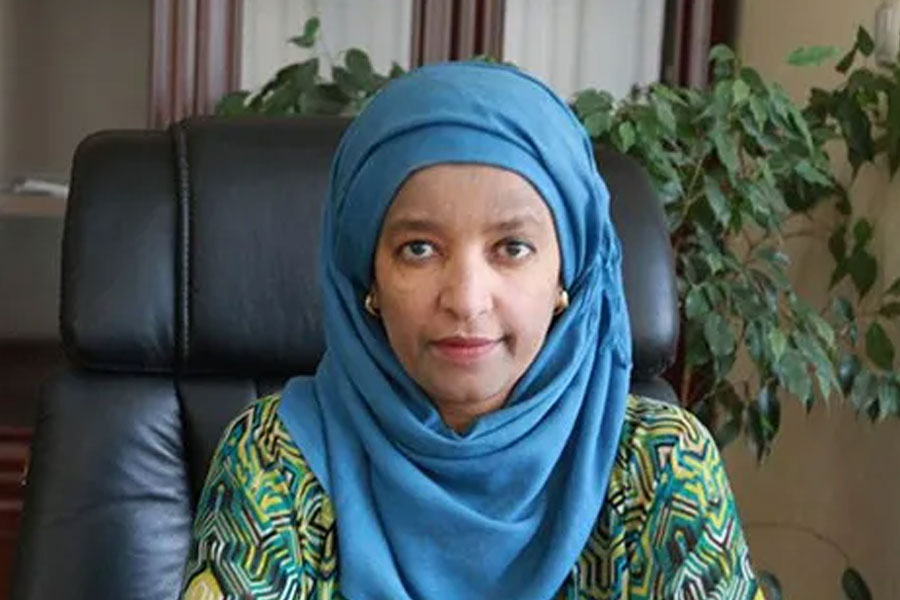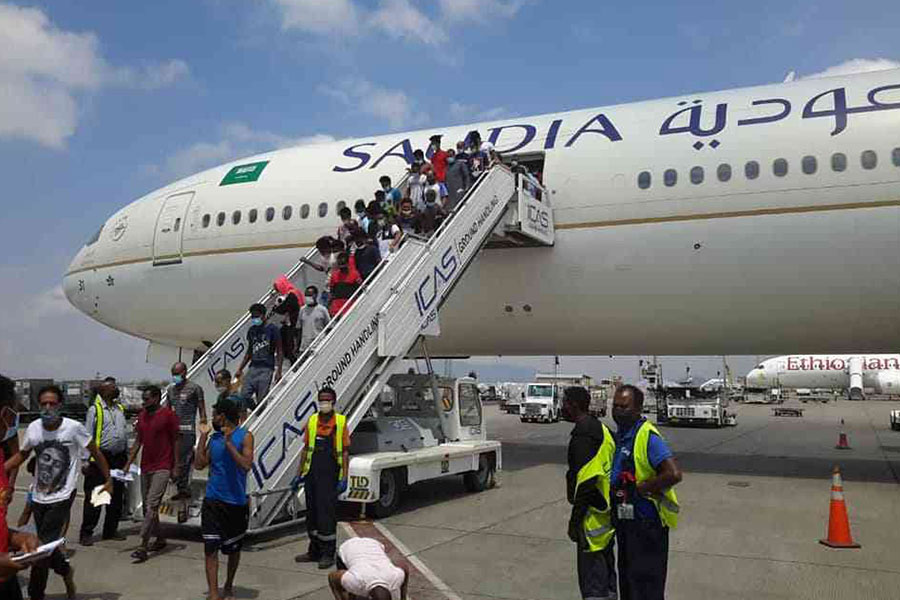
My Opinion | Sep 03,2022
Nov 12 , 2022
By Eden Sahle
In the early 70s, my young and newly married uncle Hailemariam Beyene joined the civil war to fight against the military government, a.k.a the Dergue. He left his pregnant wife, education and Eritrea, back then, a territory that was part of Ethiopia. He became part of the bloody war that lasted close to two decades.
His departure to join the fight devastated his family as much as the war crushed them emotionally and economically.
For years, his family waited in agony, praying for him to come home alive. Sadly, he was killed in action near the now-Eritrea border a few days before the war had ended. He had not even met his son.
Soon after Eritrea became an independent country, the Ethio-Eritrean war broke out. I was just a child in Addis Abeba, looking forward to my first trip to Eritrea to meet the rest of the family. The son, Daniel, was forced to join the battle despite his will. Unfortunately, his life was cut short - like father, like Son.
My mother had lost six of her brothers to the civil war. Many of my relatives lost at least three children before I was born. It did not cause a financial burden, but the lives of young men and women who could help transform the country. Many paid painful prices that brought nothing but sorrow and poverty.
That same war also had the power to separate most of the family for nearly two decades, forcing my siblings and me to grow up without a mother. We grew up under the close protection of my father, who also sacrificed a lot during the war. Everyone in my circle lived in fear and grew up without having a normal childhood. We are still living with the damaging consequence that changed the dynamics of our lives.
War and its devastating results are not new to Africa, which is often stricken by conflicts. The trajectory of the war followed us to this day, and we are repeating another tragic history. The economic and human capital loss is massive. Nevertheless, it seemed that leaders failed to learn from their predecessors, repeating the same mistake.
The far-reaching consequences touch society's overall well-being, causing mortality and disability, not to mention psychological impacts.
The unkept promises made by leaders forced many to endure the consequence of violence and continued to hinder social and economic development. All systems collapse without peace. Resources that would otherwise be invested in development will be diverted to war.
Ethiopia is a developing country. It stays poor because of the lack of nationwide peace and stability and a well-functioning economic system. Development and peace go hand in hand. The poverty that follows war exacerbates further violent tension among the public and political power contenders. National harmony is not just an economic necessity but a fierce way out of the profound mess.
Two weeks brought the news of the long-awaited peace deal ending the two-year war. But the absence of armed conflict is not enough to bring about harmony among societies and sustainable development. The ceasefire is the first step; the next focus should be addressing the underlying factors. Investing in healing and rehabilitating war victims in development plans is vital.
Ending the direct conflict should be coupled with preventing situations that divide one great nation. It requires an inclusive approach, shifting the attitude by nurturing communities' well-being and promoting investments. A society engaged in productive ventures is unlikely to engage in conflicts.
Although the effect of war is overwhelming, like what happened to my family, often surviving victims and their families do not lose hope forever. Hardship teaches them to be resilient and possess a great desire to thrive in difficult situations. But, they deserve protection and a safe environment to aspire for a better future overcoming the challenging problem they face.
The government is responsible for addressing fear and insecurity caused by war exposure. The massive task of repairing the damage awaits. Leaving it in limbo creates security risks that lead to new conflicts.
PUBLISHED ON
Nov 12,2022 [ VOL
23 , NO
1176]

My Opinion | Sep 03,2022

Sunday with Eden | Sep 01,2024

My Opinion | Oct 23,2021

Radar | Dec 17,2022

Agenda | May 14,2022

Commentaries | Dec 19,2021

Sunday with Eden | Jun 07,2020

News Analysis | Jun 01,2024

Life Matters | Dec 19,2021

Editorial | May 20,2023

My Opinion | 131967 Views | Aug 14,2021

My Opinion | 128357 Views | Aug 21,2021

My Opinion | 126294 Views | Sep 10,2021

My Opinion | 123910 Views | Aug 07,2021

Dec 22 , 2024 . By TIZITA SHEWAFERAW
Charged with transforming colossal state-owned enterprises into modern and competitiv...

Aug 18 , 2024 . By AKSAH ITALO
Although predictable Yonas Zerihun's job in the ride-hailing service is not immune to...

Jul 28 , 2024 . By TIZITA SHEWAFERAW
Unhabitual, perhaps too many, Samuel Gebreyohannes, 38, used to occasionally enjoy a couple of beers at breakfast. However, he recently swit...

Jul 13 , 2024 . By AKSAH ITALO
Investors who rely on tractors, trucks, and field vehicles for commuting, transporting commodities, and f...

Jul 5 , 2025
Six years ago, Ethiopia was the darling of international liberal commentators. A year...

Jun 28 , 2025
Meseret Damtie, the assertive auditor general, has never been shy about naming names...

Jun 21 , 2025
A well-worn adage says, “Budget is not destiny, but it is direction.” Examining t...

Jun 14 , 2025
Yet again, the Horn of Africa is bracing for trouble. A region already frayed by wars...

Jul 6 , 2025 . By BEZAWIT HULUAGER
The federal legislature gave Prime Minister Abiy Ahmed (PhD) what he wanted: a 1.9 tr...

Jul 6 , 2025 . By YITBAREK GETACHEW
In a city rising skyward at breakneck speed, a reckoning has arrived. Authorities in...

Jul 6 , 2025 . By NAHOM AYELE
A landmark directive from the Ministry of Finance signals a paradigm shift in the cou...

Jul 6 , 2025 . By NAHOM AYELE
Awash Bank has announced plans to establish a dedicated investment banking subsidiary...